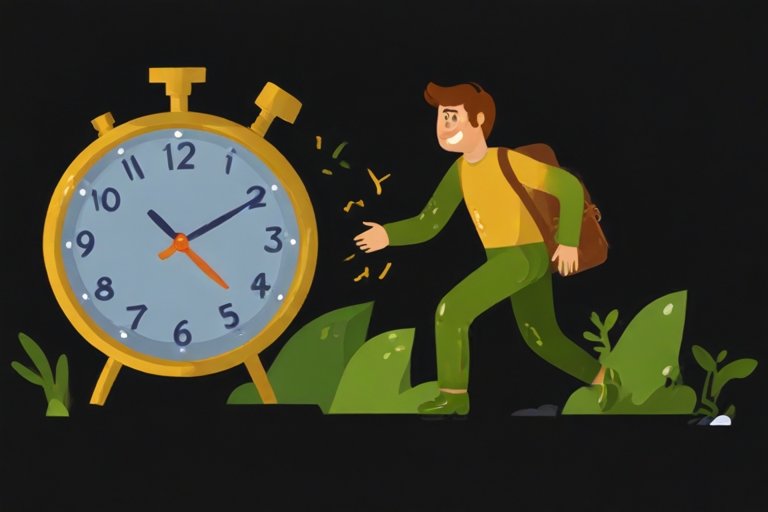Understanding the differences between rich and poor people can provide valuable insights into how wealth is built and maintained. This article explores the seven major differences that set these two groups apart. By examining their habits, mindsets, and choices, we can learn how to make better decisions for our own financial futures.
Key Takeaways
Rich people invest their money wisely, while poor people often spend it without thinking.
Education is a priority for the wealthy, whereas the poor may not see its value.
A positive mindset helps rich people achieve their goals, while a negative mindset can hold others back.
Networking is crucial for the rich; they build relationships that can lead to opportunities.
Time management is key for wealthy individuals, as they use their time efficiently to achieve more.
Spending habits differ greatly; rich people budget and save, while poor people may overspend.
Health is often overlooked by the poor, but rich people prioritize their well-being to maintain their success.
The way rich and poor people view money can shape their future; a healthy attitude towards finances is essential.
1. Investments
When it comes to building wealth, investments play a crucial role. Rich people often focus on growing their money through various investment strategies, while poor people may not prioritize this. Here are some key differences:
1.1 Types of Investments
Rich people tend to invest in:
Stocks
Real estate
Businesses
Poor people may stick to:
Savings accounts
Cash
Low-risk options
1.2 Risk Tolerance
Wealthy individuals are usually more willing to take calculated risks. They understand that higher risks can lead to higher rewards.
On the other hand, those with less money often avoid risks, fearing loss more than they hope for gain.
1.3 Long-term vs. Short-term
Rich people think long-term. They invest with the goal of growing their wealth over many years.
Poor people might focus on short-term gains, which can lead to missed opportunities for larger profits.
1.4 Financial Education
Wealthy individuals often seek knowledge about investments, attending seminars or reading books.
In contrast, those with less money may not have access to the same resources or may not prioritize learning about investing.
In summary, the way people approach investments can significantly impact their financial future. Understanding these differences can help anyone make better choices about their money.
2. Education
Education plays a crucial role in shaping the future of individuals, especially when comparing the rich and the poor. Wealthy individuals often have access to better educational resources, which can lead to more opportunities in life. Here are some key differences in education between these two groups:
- Access to Quality Education
- Lifelong Learning
- Impact on Future Success

3. Mindset

When it comes to wealth, the mindset of a person plays a crucial role. Rich people often think differently than poor people. They focus on opportunities rather than obstacles. Here are some key differences:
- Resourcefulness: Rich individuals find ways to make things work, while poor individuals often feel stuck.
- Gaining Momentum: Wealthy people build on their successes, while those with less money may struggle to get started.
- Risk vs. Reward: Rich people are more willing to take calculated risks, whereas poor people may avoid risks altogether.
Mindset Aspect | Rich People | Poor People |
|---|---|---|
View on Challenges | See as opportunities | See as obstacles |
Approach to Learning | Invest in self-improvement | Avoid new experiences |
Attitude towards Money | See as a tool | See as a source of stress |
4. Networking
Networking is a crucial part of success for both rich and poor people, but they approach it very differently. Rich individuals often build strong connections that can lead to new opportunities, while those with less wealth may not have the same access to influential networks. Here are some key points about how networking differs:
Quality over Quantity: Wealthy people focus on building deep relationships with a few key individuals rather than trying to know everyone.
Access to Resources: Rich people often have connections that provide them with valuable resources, such as funding or mentorship.
Opportunities for Collaboration: Networking can lead to partnerships that help in achieving common goals, which is often more accessible to the wealthy.
Aspect | Rich People | Poor People |
|---|---|---|
Networking Style | Focused and strategic | Broad but less effective |
Resource Access | High | Limited |
Collaboration | Frequent and beneficial | Rare and challenging |
Building a strong network can open doors to opportunities that might otherwise remain closed.
In conclusion, the way rich and poor people network can significantly impact their chances of success. While rich individuals leverage their connections for growth, poor individuals may struggle to find the same level of support. This difference highlights the growing digital divide between those who have access to networks and those who do not, making it harder for developing economies to keep up in the modern
5. Time Management

How Rich and Poor People View Time
Rich people often see time as a valuable resource, similar to money. They believe that time is money and make every minute count. In contrast, poor people may let time slip away without realizing its importance. This difference in perspective can lead to vastly different outcomes in life.
Strategies for Effective Time Management
Here are some strategies that rich people use to manage their time effectively:
Set clear goals: Knowing what you want to achieve helps prioritize tasks.
Plan ahead: Creating a daily or weekly schedule can keep you on track.
Limit distractions: Reducing interruptions allows for more focused work.
The Impact of Time Management on Success
Good time management can lead to:
Increased productivity
Better work-life balance
Greater opportunities for growth
Managing your time wisely can open doors to success and help you achieve your dreams.
Conclusion
In summary, the way rich and poor people manage their time can greatly affect their lives. By treating time as a precious resource, individuals can work towards a more successful future.
Highlights:
Rich: “treat time as money.”
Poor: “let time slip away.”
